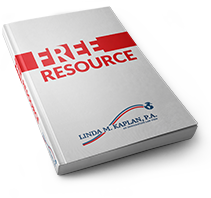Immigration is in the news daily. TPS is a frequent topic of discussion in the news so I am writing this newsletter to explain TPS. I apologize in advance for this article being so long, but the topic is important and complex.
TPS is the abbreviation for Temporary Protected Status. As the word temporary implies it is a temporary immigration status granted to citizens of countries that have been designated by the U.S. government as facing an ongoing armed conflict, environmental disaster or other extraordinary and temporary conditions. TPS has been granted due to devastation from earthquakes and hurricanes. The law relating to this was enacted in 1990 to prevent persons in the U.S. from being returned to countries where life had become dangerous or untenable.
TPS applies only to persons in the U.S. at the time of designation. It does not allow citizens of designated countries who are outside of the U.S. to apply for entry into the U.S.
As of August 2017, an estimated 325,000 TPS beneficiaries live in the U.S. (out of a total U.S. population of 324 million.) More than 90 % of the TPS beneficiaries are citizens of El Salvador (195,000), Honduras (57,000) or Haiti (50,000). The remaining beneficiaries are from Nepal, Nicaragua, Somalia, Sudan, South Sudan, Syria and Yemen.
While TPS was intended to be a temporary status, many have had the designation for a long time due to government determinations that the conditions in their countries has not improved enough for them to safely return. An academic report – “A Statistical and Demographic Profile of the US Temporary Protected Status Populations from El Salvador, Honduras and Haiti” was recently published in the Journal on Migration and Human Security. This illustrates the reality that TPS beneficiaries from El Salvador, Honduras and Haiti have become well integrated into U.S. society and our economy. Many of them came to the U.S. at a young age and have spent a significant portion of their life here. This long-term settlement has allowed them to become active and contributing members of our country. Please note the following statistics from this report
The majority of Salvadorans (51%) and Hondurans (63%) with TPS have lived in the US for at least 20 years while 16% of Haitians have lived here more than 20 years.
Many TPS beneficiaries have U.S. citizen children – approximately 270,000 native born U.S. citizens. 61% of Salvadorian and Honduran TPS holders had U.S. citizen children as reported in a 2016 survey.
Almost a third (32%) of Salvadorian and Honduran TPS holders own their own home. 90% reported that they filed income taxes every year. They have contributed to Social Security for an average of 15.4 years.
TPS status protects them from deportation (officially called removal) and allows the beneficiaries to obtain work permission. Salvadorans have the highest work force participation at 88 % with Hondurans at 85 % and Haitians at 81%. About 1 in 9 TPS beneficiaries are self-employed meaning they have created jobs for themselves and likely for others.
Many of the Salvadorans and Hondurans with TPS work in the construction industry (over 50,000 workers). This fact was especially interesting to me after hearing a recent segment on WLRN that the construction industry in South Florida was facing a significant shortage of workers. If TPS status were to be eliminated, the Florida businesses relying on them would be especially impacted considering that they are dealing with a labor shortage even with the TPS employees on board.
In the six stares in which TPS beneficiaries are concentrated (California, Florida, Texas, New York, Virginia and Maryland) these TPS beneficiaries contribute between $1.2 and $ 2.7 BILLION dollars annually to each state’s GDP.
As an immigration attorney, I hear the opinions of many people on immigration issues. What I find most interesting is the basis on which U.S. citizens form their opinions. Many look at issues of fairness and many are greatly concerned about granting privileges to foreign persons who may have violated some provisions of the Immigration laws. I like to look at it from another side – what would be the economic effect to us of proposed changes in law and/or enforcement. Many U.S. citizens have never considered how proposed changes in the immigration law would affect them economically.
The above statistics present a picture of hard working people making significant contributions to our economy, paying taxes, contributing to social security, paying their mortgages and raising their U.S. citizen children.
On Nov 9th, the Department of Homeland Security announced an end to TPS for Nicaragua (estimated to be 5300 people) but have delayed deciding on Honduras which has more than 10 times the number of TPS beneficiaries (57,000)
On October 31st, four Florida legislators introduced bipartisan legislation that would grant legal permanent resident status to over 300,000 TPS beneficiaries from Nicaragua, Honduras, Salvador and Haiti. It would apply to those who received TPS status prior to Jan 13, 2011. This proposed act – Extending Status Protection for Eligible Refugees (ESPERER for short which means ‘hope” in French.) These representatives include Carlos Curbello, Frederica Wilson, Ileana Ros-Lehtinen and Alcee Hastings. Please contact them and tell them thanks for sponsoring this. You may also reach out to other Representatives and to your Senators asking them to get on board with this legislation, to do what is fair and good for our economy as well.
- Refugees, Asylum, and other humanitarian relief. - February 9, 2024
- Florida Anti-Immigrant Legislation - May 30, 2023
- Undocumented Immigrants Pay Taxes—Even Income Taxes. - April 25, 2023


